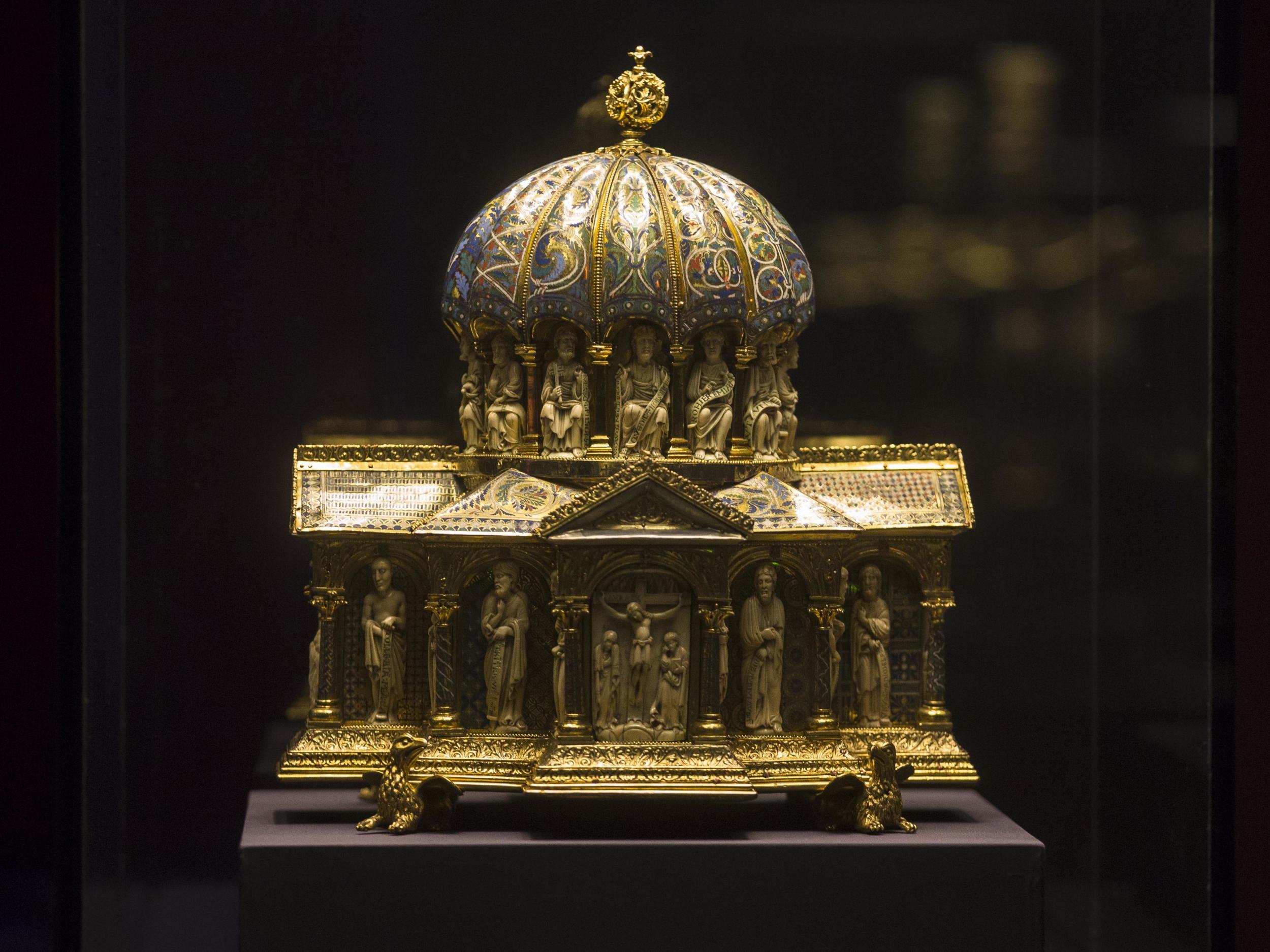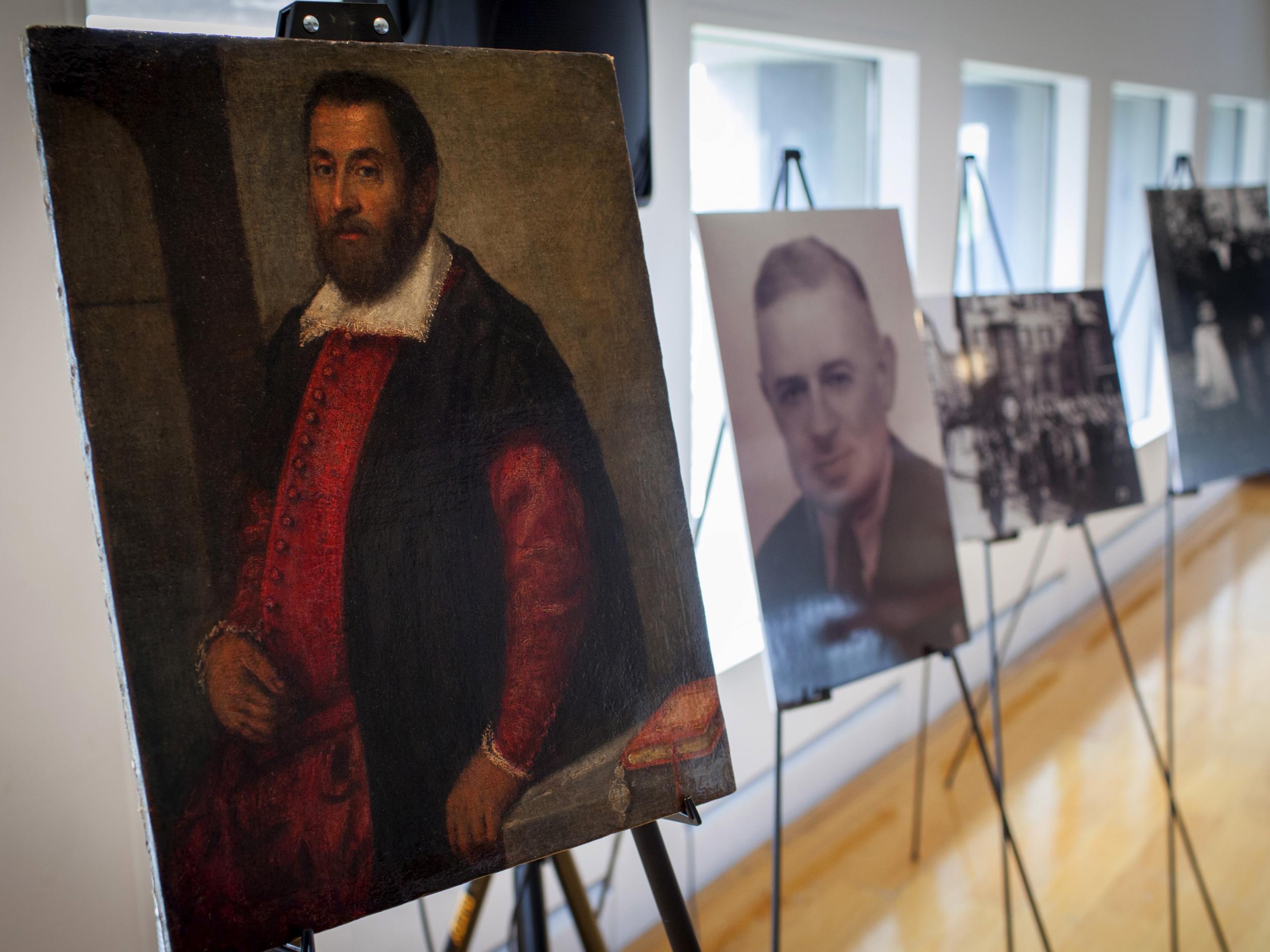Descendants of Jewish art dealer win US court case in bid to recover relics looted by the Nazis
Jed Leiber, Gerald Stiebel and Alan Philipp say their relatives were forced to sell Guelph Treasure in a coerced transaction for a fraction of its market value in 1935

Your support helps us to tell the story
From reproductive rights to climate change to Big Tech, The Independent is on the ground when the story is developing. Whether it's investigating the financials of Elon Musk's pro-Trump PAC or producing our latest documentary, 'The A Word', which shines a light on the American women fighting for reproductive rights, we know how important it is to parse out the facts from the messaging.
At such a critical moment in US history, we need reporters on the ground. Your donation allows us to keep sending journalists to speak to both sides of the story.
The Independent is trusted by Americans across the entire political spectrum. And unlike many other quality news outlets, we choose not to lock Americans out of our reporting and analysis with paywalls. We believe quality journalism should be available to everyone, paid for by those who can afford it.
Your support makes all the difference.The heirs of Nazi-era Jewish art dealers have spent nearly a decade trying to persuade German officials to return a collection of medieval relics valued at more than $250 million.
But they didn't make much headway until they filed a lawsuit in an American court.
The relatives won a round last week when a federal judge ruled that Germany can be sued in the United States over claims the so-called Guelph Treasure was sold under duress in 1935.
It's the first time a court has required Germany to defend itself in the US against charges of looted Nazi art, and experts say it could encourage other descendants of people who suffered during the Holocaust to pursue claims in court.
The case also is among the first affected by a law passed in Congress last year that makes it easier for heirs of victims of Nazi Germany to sue over confiscated art.
“It open all kinds of other claims based on forced sales in Nazi Germany to jurisdiction in US courts if the facts support it,” said Nicholas O'Donnell, an attorney representing the heirs.
The collection includes gold crosses studded with gems, ornate silverwork and other relics that once belonged to Prussian aristocrats. The heirs of the art dealers — Jed Leiber, Gerald Stiebel, and Alan Philipp — say their relatives were forced to sell the relics in a coerced transaction for a fraction of its market value.
The consortium of dealers from Frankfurt had purchased the collection in 1929 from the Duke of Brunswick. They had managed to sell about half of the pieces to museums and collectors, but the remaining works were sold in 1935 to the state of Prussia, which at the time was governed by Nazi leader Hermann Goering.
Following the sale, Goering presented the works as a gift to Adolf Hitler, according to court documents. The collection has been on display in Berlin since the early 1960s and is considered the largest collection of German church treasure in public hands.
German officials claim the sale was voluntary and say the low price was a product of the Great Depression and the collapse of Germany's market for art. In 2014, a special German commission set up to review disputed restitution cases concluded it was not a forced sale due to persecution and recommended the collection stay at the Berlin museum.

Two of the dealers fled Germany following the sale of the Guelph Treasure. The other died there, although his children managed to get out.
The heirs decided to sue Germany and the Prussian Cultural Heritage Foundation in US court a year later. Germany tried to dismiss the case under the Foreign Sovereign Immunities Act, which exempts foreign states from being sued in the US It makes an exception for property taken in violation of international law.
US. District Judge Colleen Kollar-Kotelly in the District of Columbia said the heirs could argue that the sale was a “part of the genocide of the Jewish people during the Holocaust and, accordingly, violated international law.”
The ruling will encourage other families to pursue stolen art cases in American courts, said Jonathan Petropoulos, a history professor at Claremont McKenna College who specialises in Nazi art restitution.
“The German system for civil litigation presents so many obstacles to claimants,” Petropoulos said. “Victims and heirs deserve their day in court in front of an impartial judge.”
Germany can appeal the ruling. Attorney Jonathan Freiman said German officials are reviewing their options.
“This is a dispute that was already resolved on the merits in Germany, and it doesn't belong in a US court,” Freiman said.
Thousands of works of art plundered by the Nazis have been returned to their rightful owners or families over the years from Germany and other countries. The Limbach Commission in Germany was formed in 2003 to consider restitution in contested cases where opposing parties can't reach an agreement. But it has been criticised for moving too slowly.
The German government announced several reforms last year intended to improve the process.
Associated Press
Join our commenting forum
Join thought-provoking conversations, follow other Independent readers and see their replies
Comments